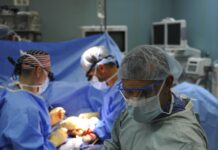Are you looking to get rid of the unwanted fats in your belly? If proper diet and exercise don’t bring the desired result, you might want to consider a tummy tuck. Also known as abdominoplasty, a tummy tuck is a surgical procedure to remove excess skin around your midsection.
Whether the belly fat is due to aging, weight gain or childbirth, a tummy tuck can help boost your body image. But you must consider several things when planning to have a tummy tuck. One is understanding the recovery process beforehand.
The timeline of recovery after a tummy tuck can vary for every person. But knowing what to expect can help make the journey easier. Highlighted below are must-know realistic expectations and tips about tummy tuck recovery.
Things To Expect After Your Tummy Tuck Procedure
A tummy tuck is an outpatient procedure for most individuals. You can head home on the same day you had the surgery. But some surgeons may require you to spend a night or two in the hospital.
You can expect to go to a recovery room right after the procedure. During the initial hours of recovery, a healthcare professional will monitor your incision. The surgeon should give detailed instructions about your recovery time and postoperative care.
When you’re free to leave the hospital, you’ll need someone to drive you home and help you out for a few days. Remember that a tummy tuck involves an incision on the abdominal muscles. So, expect to experience the following after the surgery:
Side Effects
A swollen or painful abdomen is one of the short-term side-affect you may experience. Pain and discomfort are more noticeable for the first week after the procedure. But they start to improve as you continue to recover.
Limited Mobility
You can’t return to your usual activities immediately after your surgery. You may have trouble with bending, lifting or standing for prolonged periods. Despite the limited mobility, you’ll need to get up and walk around to regain your normal movement.
Post-surgical Scarring
A tummy tuck will leave some scarring, which may be more pronounced during the first three to six weeks. It can take a full year for your scars to fade and become less noticeable.
Emotional Swings
Experiencing mixed emotions is also typical after the procedure. You may feel frustrated by the slow and gradual process of healing. Feelings of unattractiveness and regrets may also come up. These are normal and will lessen over time.
3 Helpful Tips To Speed Up Your Tummy Tuck Recovery
Each person heals at a different pace. Some can resume their normal activities after the first two to three weeks. Meanwhile, others may need a month off work, especially if their job involves strenuous activities. While recovery is a gradual process, there are steps you can follow to get better as quickly as possible. Consider these helpful tips to speed up your tummy tuck recovery:
1. Follow daily maintenance
Following your postoperative care instructions is essential. It’s what you must do to make your recovery easier and faster. These may include the following:
- Caring for your incision and drainage tubes
- Taking any prescribed antibiotics as directed
- Wearing your compression garment as recommended
- Doing breathing exercises
- Avoiding physically-demanding activities
2. Work closely with your surgeon
Working closely with your surgeon is essential for your recovery and safety. Don’t skip any appointments with them. You must also listen to what your body tells you and note any unusual changes. If you’re experiencing any problems, call your doctor as soon as possible.
3. Be gentle with your body
It can be frustrating not to return to your usual routine immediately. But recovery is a process, and it will take time. Don’t push yourself too hard to speed it up heedlessly. Treat your body with more care and give it enough time to return to its normal state.
Work Towards Seamless Tummy Recovery
Weeks after a tummy tuck procedure can be uncomfortable. But your surgeon will help you develop a plan to make your recovery seamless. Ensure to discuss it during your consultations so you can prepare yourself better.

















